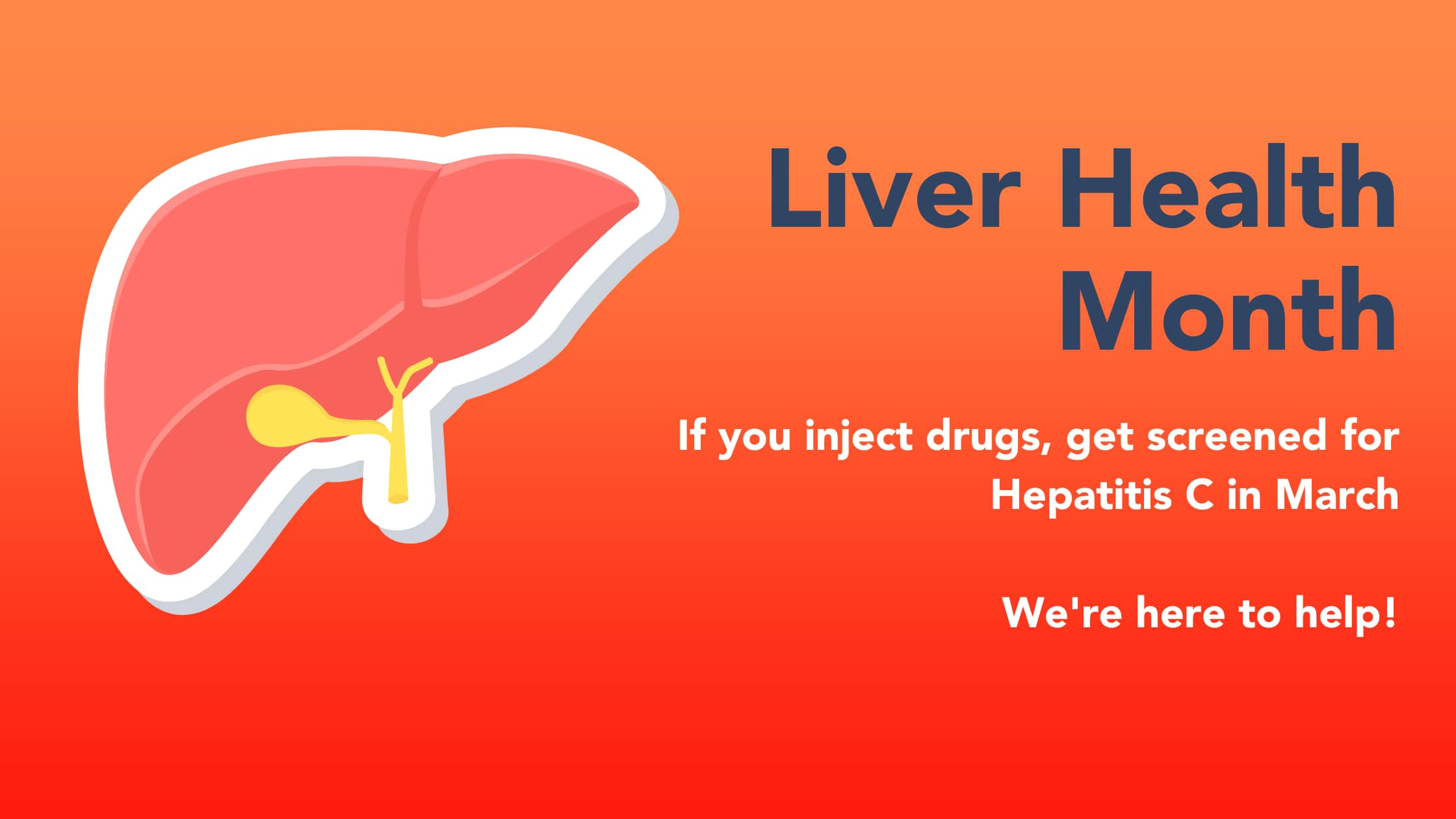March is Liver Health Month
March is Liver Health Month

Opioid use disorder treatment without Hepatitis C care puts you at risk
March is Liver Health Month in Canada, when we’re all reminded to think about our livers and the various behaviours that effect the health of this vital organ. For people who inject drugs, getting screened regularly for Hepatitis C (a common disease that attacks the liver) is extremely important to avoid serious illness and, in some cases, even death.
In fact, 3 out of 4 new cases of Hepatitis C are in people who inject drugs.
At any one time, there are an estimated 300,000 people in Canada living with Hepatitis C. What’s even scarier is that 1 in 3 people don’t know they have it because they haven’t been screened. For people in treatment for opioid use disorder, getting diagnosed and treating Hep C quickly is critical.
That’s why our rapid access opioid use disorder treatment program includes quick and easy Hepatitis C screening and care.
Our friendly care teams use the latest pain-free sample collection methods (no need for needles!) to take a blood sample from our patients’ finger when they come for their appointment. From there, we screen the sample for Hepatitis C and keep an up-to-date record of the results in our patient files. If they test positive, we connect them quickly and seamlessly to a community care provider and follow up with them to make sure their care is progressing the way it should.
It’s all part of how we go above and beyond for the people who trust us with their recovery from opioid use disorder.
About Hepatitis C
Hepatitis C is caused by the HCV virus. Unfortunately, it’s very hard to detect, as many people don’t show any symptoms of infection at all. There are also a lot of common myths about Hepatitis C that keep people from getting the help they need. That’s why screening is so important in catching it early. After 6 months, an infection is considered “chronic”, and the symptoms become much more severe.
Early symptoms of Hep C include:
- fatigue
- nausea
- vomiting
- dark urine
- pale stools
- loss of appetite
- flu-like symptoms
- pain or tenderness on the right side of the abdomen
- jaundice (yellowing of the skin and/or the whites of the eyes)
Once the infection becomes chronic, you may start to notice:
- abdominal pain
- blood in stool or vomit
- fluid build up (in your abdomen)
- jaundice (yellowing of the skin or eyes)
Luckily, getting screened is easy and painless. Talk to us to find out more!
Get help now
If you’re concerned that you or someone you know may be at risk of Hepatitis C, please reach out to us for help!
Call 1.877.937.2282 or fill out our contact form to talk to a counsellor.